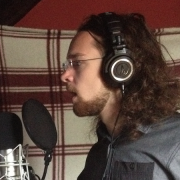The Banshee
Description
Vocal Characteristics
Language
EnglishVoice Age
Young Adult (18-35)Accents
Irish (General)Transcript
Note: Transcripts are generated using speech recognition software and may contain errors.
The cold wind blows on a dark night, shaking the trees outside. Children in their beds, sleeping soundly. The creak of a rocking chair and a gentle tune being hummed as a needle pulls thread. A distant shriek. The tune stops. A nearer, sorrowful keening clutches the hearts of those listening. A terrified silence falls across the house. The story of the Banshee is one of myth, mystery and folktale. The word, Banshee, comes from the Irish "ban sí", which directly translates to "fairy woman". The banshee was a harbinger of death and warned families of a coming fatality in the family. Often heard but not seen, the banshee would shriek sorrowfully for the family to hear this cry is referred to as a keen, which comes from the Irish word "caoine". The origin of the Banshee is up for debate, with the most prominent theories being that they were pagan women who would take alcohol is payment to moourn the death of a warrior. But priests in the eighth century cursed them for eternity for their trade, never to rest. Or, that they were simply the cry of a fox or a barn owl. In the ancient mythology of Ireland, Aoibheall or Abell, The Guardian spirit of the Dalcassians, and the Queen of the Fairies of Munster was described similarly on as the Queen of the Banshees. There are accounts of visual descriptions of Banshees, but they're inconsistent, some referring to beautiful women with long, curly white or red or blond hair crying with arms open, while others refer to ugly old women dressed in rags, shrieking into the night. Banshees are still reported as having been heard before the death of a loved one to this day.
Tags
Narrator, Articulate, Bilingual, Calming, Educational, Folksy, Mellow, Approachable, Irish (General)
